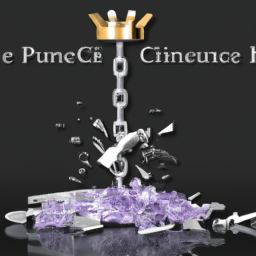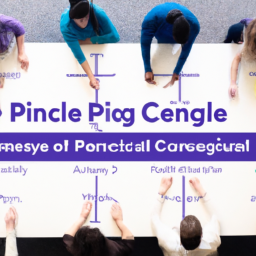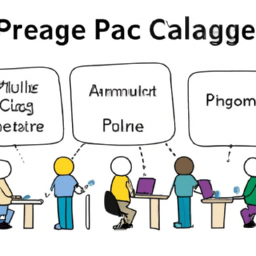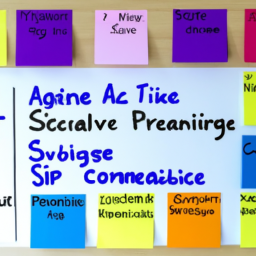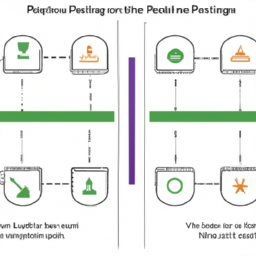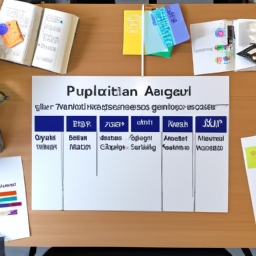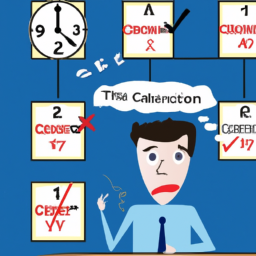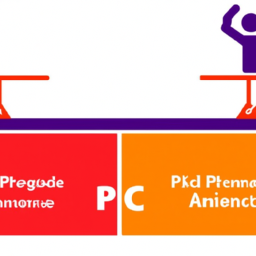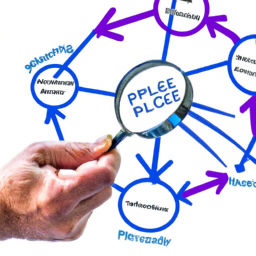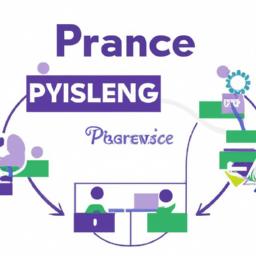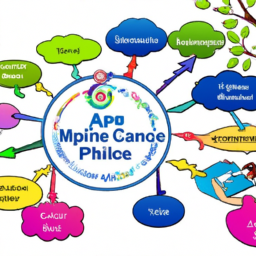Are you a project manager looking to enhance your skills and advance your career? The world of project management certifications can be overwhelming, with numerous options to choose from.
In this article, we will provide you with a comprehensive comparison of PRINCE2 Agile and other popular project management certifications. By exploring the key differences, exam formats, and career opportunities, we aim to help you make an informed decision.
So, fasten your seatbelt and get ready to navigate through the exciting world of project management certifications.
Key Takeaways
- PRINCE2 Agile combines agile project management with the structured framework of PRINCE2, while other project management certifications like PMP follow a more traditional approach.
- PRINCE2 Agile is more flexible and adaptive, while PMP is better suited for projects with well-defined requirements.
- PRINCE2 Agile emphasizes incremental delivery, frequent feedback, and continuous improvement, while PMP focuses on establishing a well-defined plan, managing risks, and controlling project scope and schedule.
- PRINCE2 Agile and other certifications like PMP are in high demand across industries and offer various career opportunities with competitive salaries.
Key Differences Between PRINCE2 Agile and PMP
The key differences between PRINCE2 Agile and PMP can be seen in their approach to project management methodologies.
PRINCE2 Agile combines the flexibility of agile project management with the structured framework of PRINCE2. It emphasizes on incremental delivery, frequent feedback, and continuous improvement. The methodology allows for adaptability and encourages collaboration among team members, stakeholders, and customers.
On the other hand, PMP follows a more traditional approach to project management. It focuses on establishing a well-defined plan, managing risks, and controlling project scope and schedule. PMP places a strong emphasis on documentation and formal processes.
While both methodologies aim to deliver successful projects, PRINCE2 Agile offers a more flexible and adaptive approach that is suitable for projects in dynamic and uncertain environments, while PMP is better suited for projects with well-defined requirements and a more predictable scope.
Exam Format and Certification Requirements
Exam format and certification requirements are different for PRINCE2 Agile compared to other project management certifications.
When it comes to the exam structure, PRINCE2 Agile follows a multiple-choice format, with 50 questions to be answered in 150 minutes. The passing score is 55%.
On the other hand, other project management certifications like PMP may have different question types, such as situational or scenario-based questions.
As for the certification process, PRINCE2 Agile requires candidates to pass the exam and obtain a PRINCE2 Agile Foundation certification before they can take the PRINCE2 Agile Practitioner exam. This two-step process ensures that candidates have a solid understanding of the PRINCE2 Agile methodology.
However, other project management certifications may have different prerequisites or additional requirements, such as project management experience or education.
Scope and Applications of PRINCE2 Agile and Scrum
To fully understand the scope and applications of PRINCE2 Agile and Scrum, you can explore their similarities and differences. These two methodologies are both widely used in Agile project management and offer various benefits for organizations. Here are some key points to consider:
-
PRINCE2 Agile combines the best practices of PRINCE2 and Agile methodologies, providing a structured framework for managing projects in an Agile environment.
-
Scrum, on the other hand, is a specific Agile methodology that focuses on iterative and incremental development, with frequent feedback and adaptation.
-
PRINCE2 Agile is more suitable for larger, complex projects that require a hybrid approach, while Scrum is often used for smaller, more flexible projects.
-
PRINCE2 Agile emphasizes governance and control, ensuring that projects align with business objectives, while Scrum promotes self-organization and collaboration within cross-functional teams.
-
Both methodologies can improve project delivery, increase customer satisfaction, and enable organizations to quickly respond to changing requirements.
Comparison of Training and Support Resources
Explore the available training and support resources to enhance your understanding and proficiency in PRINCE2 Agile and Scrum methodologies. When it comes to training options, both PRINCE2 Agile and Scrum offer a range of courses and certifications to suit your needs. PRINCE2 Agile provides a comprehensive training program that covers the integration of PRINCE2 and Agile principles, while Scrum offers various levels of certification, including Scrum Master and Product Owner. Additionally, both methodologies offer online support through forums, communities, and online resources. These online support systems provide a platform for practitioners to connect, share knowledge, and seek guidance from experts. Whether you prefer in-person training or online resources, both PRINCE2 Agile and Scrum offer training options and online support to help you succeed in implementing these methodologies in your projects.
| PRINCE2 Agile | Scrum |
|---|---|
| Comprehensive training program | Various levels of certification |
| Integration of PRINCE2 and Agile principles | Scrum Master and Product Owner certification |
| Online support through forums and communities | Online resources for practitioners |
Job Market and Career Opportunities for PRINCE2 Agile and Other Certifications
When considering your career opportunities, it’s important to understand the job market for PRINCE2 Agile and other relevant certifications. Here are some key points to consider:
-
Job market trends: The demand for project management professionals with PRINCE2 Agile and other certifications is on the rise. Companies are recognizing the value of these certifications in ensuring successful project delivery and are actively seeking professionals with these skills.
-
Salary potential: Professionals with PRINCE2 Agile and other certifications can expect competitive salaries. The average salary for PRINCE2 Agile certified professionals is around $95,000 per year, but this can vary depending on factors such as experience, location, and industry.
-
Career growth opportunities: With PRINCE2 Agile and other certifications, you can open doors to various career opportunities. These certifications demonstrate your expertise in project management and can help you advance in your current role or explore new career paths.
-
Industry demand: PRINCE2 Agile and other certifications are in high demand across industries such as IT, finance, healthcare, and construction. Having these certifications can make you a valuable asset to organizations in these industries.
-
International recognition: PRINCE2 Agile and other certifications are globally recognized, allowing you to work on projects internationally and expand your career horizons.
Understanding the job market trends and salary potential for PRINCE2 Agile and other certifications can help you make informed decisions about your career path and maximize your opportunities for growth and success.
Frequently Asked Questions
What Are the Prerequisites for Obtaining a PRINCE2 Agile Certification?
To obtain a PRINCE2 Agile certification, you need to meet certain prerequisites. These include having a current PRINCE2 Foundation certification, or a Project Management Professional (PMP) certification, or any other relevant project management certification.
The benefits of obtaining a PRINCE2 Agile certification are numerous. It demonstrates your knowledge and understanding of both PRINCE2 and agile methodologies, making you a valuable asset to any organization that is using these approaches in their projects.
How Does PRINCE2 Agile Differ From Other Agile Project Management Frameworks?
Prince2 Agile differs from other agile project management frameworks in several ways.
Firstly, it offers a comprehensive approach that combines the best of both PRINCE2 and agile methodologies.
Unlike Scrum, which focuses on software development, Prince2 Agile is applicable to a wide range of industries.
Additionally, Prince2 Agile incorporates Lean principles, making it a more efficient and streamlined approach to project management.
This unique combination sets Prince2 Agile apart and makes it a valuable certification for professionals seeking a versatile and effective project management framework.
Is PRINCE2 Agile SuITable for Industries Outside of the IT Sector?
PRINCE2 Agile is indeed suitable for industries outside of the IT sector. It offers numerous benefits when implemented in non-IT industries. Improved project management practices, increased collaboration between teams, and better risk management are some of the advantages.
Case studies have shown successful adoption of PRINCE2 Agile in sectors like construction, healthcare, and finance. These industries have witnessed improved project outcomes, increased customer satisfaction, and enhanced agility in their operations.
PRINCE2 Agile’s adaptability makes it a valuable certification for any industry looking to embrace agile project management principles.
Can PRINCE2 Agile Be Combined With Other Project Management Methodologies?
Yes, PRINCE2 Agile can be combined with other project management methodologies. By combining methodologies, you can leverage the strengths of each approach and create a more tailored project management framework.
This flexibility allows organizations to adapt to different project requirements and industry standards.
Additionally, having PRINCE2 Agile certification along with other agile certifications can showcase your expertise in both traditional and agile project management, making you a valuable asset in today’s dynamic business environment.
What Are the Ongoing Maintenance Requirements for Maintaining a PRINCE2 Agile Certification?
To maintain your PRINCE2 Agile certification, ongoing maintenance requirements include earning Continuing Professional Development (CPD) points and renewing your certification every three years.
This ensures that you stay up-to-date with the latest industry trends and best practices.
The benefits of PRINCE2 Agile certification include increased job prospects and credibility, as well as the ability to adapt PRINCE2 methodology to agile environments.
Conclusion
In conclusion, when considering project management certifications, it’s crucial to weigh the benefits and differences of each option.
PRINCE2 Agile offers a unique blend of the PRINCE2 framework and agile methodologies, making it a valuable choice for professionals seeking to enhance their project management skills in an agile environment.
While PMP certification remains highly regarded in the industry, PRINCE2 Agile fills a specific niche that PMP may not cover.
Ultimately, the choice between certifications depends on individual career goals and the specific needs of the organization.

